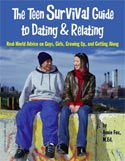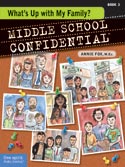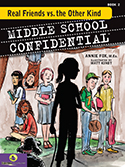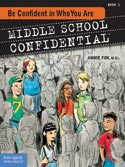Anger:
“What does 'clean vs. dirty anger' really look like?”
Hey Terra,
I love your newsletters and articles, and I really liked the one about clean vs. dirty anger. Could you please provide some specific examples of each?Thanks!
Mom X 3
Dear Mom X 3 ,
So glad you're enjoying Parent Forum. Sure I can give you some examples of the use of clean vs dirty anger:
If you walk into your child's room and the wall-to-wall mess drives you up the wall, a "dirty" anger response might sound like this:
"What kind of a pig sty is this?! And why's your new jacket balled up like a rag?! We just bought that for you! Don't you have any respect for us and the money we earn? Don't you have any self-respect? Obviously not because you're such a slob. You've always been a slob. Who will ever want to live with you?!"
Clean anger might sound like this:
"I really hate the way this room looks right now! Just standing here makes me feel disorganized. I'd like to be able to walk in here and spend time with you without feeling like I'm going to step on something or be attacked by a mob of dirty socks. [Humor works well to diffuse anger.] When you treat your clothes this way, it makes me feel like you don't appreciate the things we buy for you. That's not okay with me. So what can we do about this?"
Dirty anger is a single-minded attack. It discourages discussion and only leads to more anger and resentment on both sides. On the other hand, clean anger can lead to a conversation. (Note that "What can we do about this?" is an offer to work together to solve the problem.) This kind of response is much more likely to turn into a plan of action including a compromise that gives parent and child some of what each of them wants. Conversations foster mutual respect and cooperation and that's exactly what you want to teach your child about conflict resolution.
I hope this helps to clarify the concept.
In friendship,
Annie
















